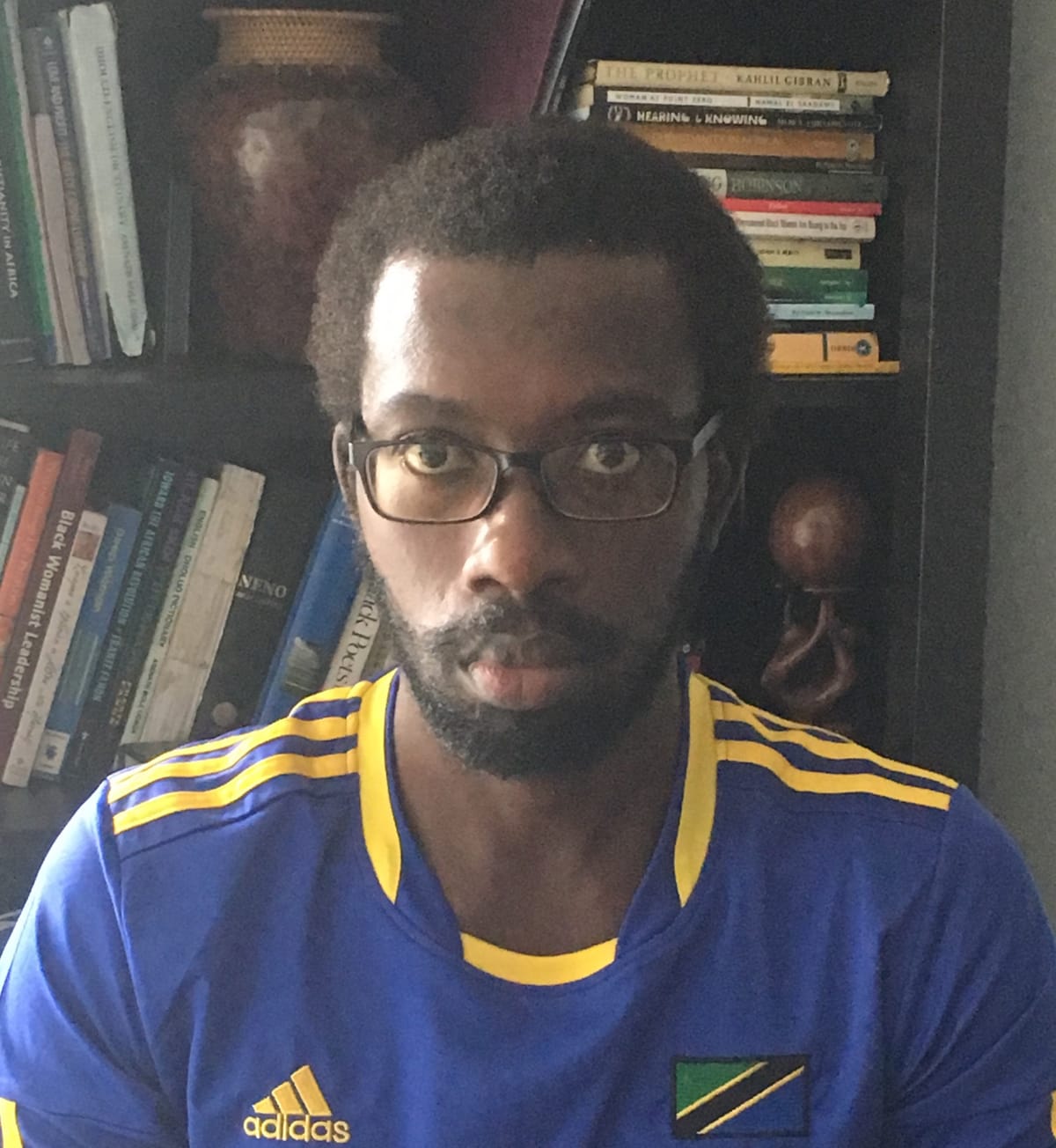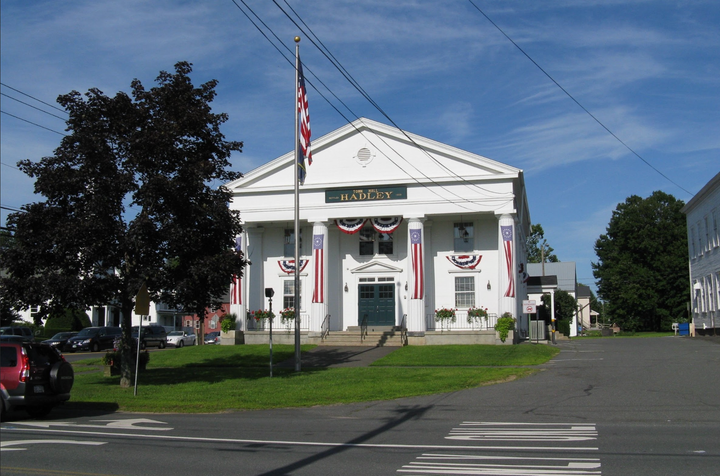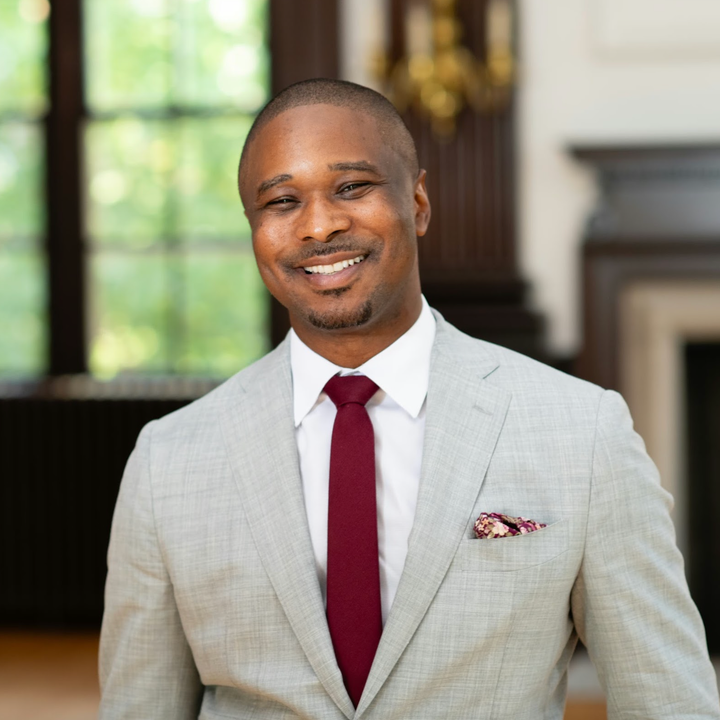Coder Parses Problems, Not Just Algorithms

When Nicholaus Mollel ’10 landed in America for the first time, an Amherst upperclassman drove him to campus from the airport for International Student Orientation, a program that takes place a week prior to First-Year Orientation.
Amherst had been nothing more than a word on a page for Mollel until he saw the campus in its August greenery. “Liberal arts” was a term alien to the pedagogy of his home in Moshi, Tanzania, where practicality and pre-professionalism reigned, but it was one that excited him: the agency to explore academically made sense for him.
He also liked the charming photos of campus and the idea of a small, focused student body.
The conversation he had on that first ride to campus turned out to be a foothold Mollel needed. Transitioning to Amherst from Moshi, half a world apart, was certainly not easy, but he confided that the help he received from international student peers who had experienced the same turbulence, as well as the warm welcome he received from Amherst’s staff, helped him succeed.
“Even if I had any challenge, from the beginning, I knew who I could go to,” Mollel said. “That made things a lot easier than they could have been.”
This statement demonstrates precisely the way in which Mollel thinks about the world: in terms of problems and strategies for solutions.
In our interviews, Mollel is measured. He focuses immediately on the concrete in order to convey his biography in as straightforward a way as possible.
He leaves little room to explain how he feels; instead, he explains how he thinks. This betrays his deep humility, and also shows his analytical mind at work, always attempting to identify and convey the optimal answer rather than obfuscate.
The other important piece of Mollel’s arrival was his orientation trip, which he calls one of the seminal experiences of his time at Amherst and a testament to the strength of the institution as a whole.
He participated in the now-defunct Community Engagement Orientation Trip (CEOT). The trip helped him form a close social circle of people who, through mutual experience and intimate conversations, became stalwart friends and confidants.
The trip also solidified a passion for helping others, which would become a formative feature of his four years at Amherst.
Discovering an Outlet Despite enrolling in a liberal arts college, Mollel initially thought he wanted to be an engineer.
“My [first-year] advisor was Professor [David] Hall in the physics department. I had these interests in physics, math and science. I met with him, and he recommended I take Intro to Computer Science my freshman fall,” he said.
Once he did, Mollel was hooked.
“It gave me the space and the excitement to create, which I would have gotten out of engineering. And so, it was like okay, — this is what I want to do,” Mollel said.
Mollel then spent much of his class time in the Seeley Mudd building, jumping between math courses and computer science electives, every so often fitting in a writing-based course, which he says has given him the edge in his field today.
Along with his coursework in mathematics, statistics and other sciences, he engaged with the kind of challenging problems that excited him.
He found Linear Algebra to present the greatest challenge of all his courses, but it taught him a valuable lesson: “doing something that is hard does not have to be wasteful. You can have a hard time in a course and still have a profound experience.” When pushed in this way, he worked harder to put his best foot forward.
Purely studying mathematics, however, was not the right fit for him in the long run.
Instead, Mollel found himself most engaged when he had concrete problems and projects to grapple with.
In his Advanced Data Structures course with the late Professor of Computer Science Lyle McGeoch, Mollel loved how project-based learning solidified his understanding of a complex idea.
He worked to provide a reasonable solution to the famous traveling salesman problem.
The problem, proven to have no perfect solution, simply looks to find the shortest path for a salesman to take on a trip where he has to visit every city on a map.
Mollel, along with his teammates, synthesized existing literature on the subject created a solution and implemented a graphical interface, where one could watch as the computer calculated the optimal route on maps of thousands of cities. McGeoch’s commitment to his students, as well as his thoughtful feedback as the project progressed, pushed Mollel to expand his understanding of how computers can be used to solve problems.
Not Everything Can Be Programmed Not all problems, however, could be solved with a computer program, and Mollel understood this. Because of what he was exposed to on CEOT, Mollel became heavily involved in what would become the Center for Community Engagement (CCE), then the Center for Community Service.
Mollel worked as a tutor at schools in the town of Holyoke, providing standardized test tutoring to students who were behind. Teaching presented a unique set of challenges.
On one hand, working with students was deeply rewarding when they made significant gains. On the other hand, students were often already too far behind when tutoring began, and at times Mollel felt lost and a little hopeless.
In response, Mollel would search for solutions. With other students, he lobbied Amherst and its partner programs to allow tutors to reach kids earlier, before they fell behind, and saw improvements in the success of his students. After several years working in the program, Mollel became its leader, helping coordinate tutoring.
In addition to his work as a tutor, Mollel challenged himself by singing in the Gospel Choir, which, as a subunit of the Black Student Union (BSU), brought him a sense of community and great enjoyment.
On campus, most knew Mollel for his work in community engagement or in BSU, but also as a resident of Charles Drew House, which served as the primary vehicle of his social life on campus.
The house’s close-knit community, as well as its service-based mission, soon became a home to him. By his senior year, Mollel felt he had a grasp on how to think like a computer scientist, and he put that to use in his senior thesis, titled “Neural Networks & Page Swapping.”
Neural networks, now a buzzword with connotations beyond its original conception, were a fairly novel idea at the time — essentially statistical processes mimicking human learning by interpreting sensory inputs. Neural networks were just starting to exhibit human-level performance on tasks like identifying a cat in a photograph, identifying individuals from just their penmanship and reading traffic signs on the road. Mollel, with guidance from Professor of Computer Science Scott Kaplan, worked to improve a computer’s memory system using the superhuman learning powers of neural networks.
Computers also have to store terabytes of information, so they store data on “pages,” like a book. These pages, depending on their importance, are ordered so that the information you have to look at very often is at the front. For his thesis, Mollel trained his neural network to predict how to best organize the order of this book by feeding it an enormous dataset of past requests to access data.
Based on this data, the network can learn how to effectively handle the massive influxes of data computers receive.
In theory, this would reduce the amount of reordering of pages the computer had to accomplish. After many hours of tinkering with the fine-tuning of the network, Mollel created a neural network that could, from the dataset of the most recent activity on a computer, learn to efficiently store the data you might want to immediately access.
“He did some very good work, in a topic that deserves further exploration, but it was great to have such a capable student take on such a novel combination of ideas, page swapping and neural networks,” Kaplan said.
The unique solution to a problem that will continue to plague computer scientists for years to come demonstrated how far Mollel had come in the field over his time at Amherst.
A Swiss Army Knife: Transforming Computer Applications Coming from Amherst’s computer science program, Mollel had a unique set of skills.
“I took a couple classes at UMass [Amherst], and the people in those classes had way more hands-on experience than I had,” he noted. “What I had, however, was a broader understanding of the field. Given a problem, Amherst prepared me to use a broad variety of tools to solve that problem, rather than just one.”
While other young coders with specific expertise might have been a well-made seven-millimeter flathead screwdriver, Mollel said he was a Swiss Army knife.
“It was easier for me to pick up new things, learn them quickly, but also know what I have to do [in the big picture],” he said.
Post-Amherst, Mollel spent a number of years at Boston Software, which sells a suite of software platforms for insurance companies.
After a few years as a junior engineer, Mollel was promoted to oversee a drastic change with in the company.
Originally selling Microsoft Windows-based software, Boston Software was moving all of its products into a web-based format.
It was a massive undertaking, equivalent to not only translating the Bible from Latin to English, but also transforming it from a set of scrolls to a printed, bound book. He drew heavily on the understanding of the field from his time at Amherst to move away from direct translation, instead focusing on solving the unique challenges the new medium presented.
After such a dramatic project, Mollel thought to himself, “What could I possibly do next?”
Mollel felt it was time to leave Boston Software upon finishing the mess of programing languages and translation required for his projects. His next project was not in the modes of presenting content in different forms, but rather managing highly-used software. This September, he joined Venmo, the globally-popular mobile payment service owned by PayPal, where he is now a senior engineer.
Mollel will be working with his team to take on the challenge of handling massive amounts of data in real time. One of the upcoming challenges he will face is the integration of Venmo’s forthcoming credit card into the existing digital system.
The most exciting part of this new role for him, however, is the responsibilities of management. “It gives me space to go in new directions,” he said. “I get to chart the course of our architecture, and that’s a problem which excites me.”
From our brief conversation, I could tell Mollel thrives because of his natural tendency to break down a problem into its component parts, apply previous strategies and devise solutions. This process, honed over 10 years of engineering complex systems, comes second nature to him. Even more apparent, however, is the consistency of his spirit. To come to a new country, adapt and subsequently thrive requires a brave and resourceful mindset.
Amherst certainly presented him not only with challenges but also with strategies for solving problems. In the classroom, Amherst gave him the analytical toolbox to engage in the kind of projects that stimulated him. In his community, fellow international students, Drew House and BSU provided him with a set of peers who cared deeply about him and whom he could lean on in difficult moments.
In his work with the community at large, he learned that he can use these problem-solving superpowers to help others address their needs.
Upon his graduation from Amherst, he realized that his “own experiences as an international student could be very useful to future students in helping them succeed. I want to tell all the knowledge I wished I had a little bit earlier.” Consequently, he was an active participant in the Loeb Center’s Pathways program, which connected alumni with current students, before it was terminated.
Mollel’s top three pieces of advice for international students: get your driver’s license, think seriously about if you want to stay in the U.S. after graduation well before you graduate and study abroad if you can. “Even though you may feel you are already abroad, it seems like such an awesome opportunity to grow even more. I regret not studying abroad,” he said.
In that way, Mollel’s commitment to tackling big problems, from software architecture strategies to succeeding as an international student, seems to be the defining feature of his life’s work.
His problem-solving capacity demonstrates not only his approach to life but also his concern with solving the problems of the world — in his own life, in others’ lives and in larger society.




Comments ()